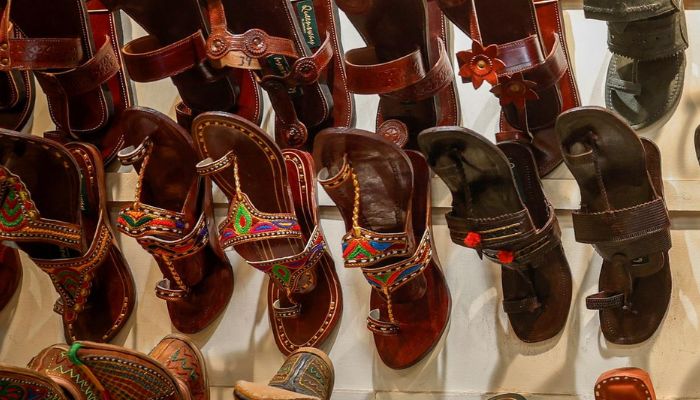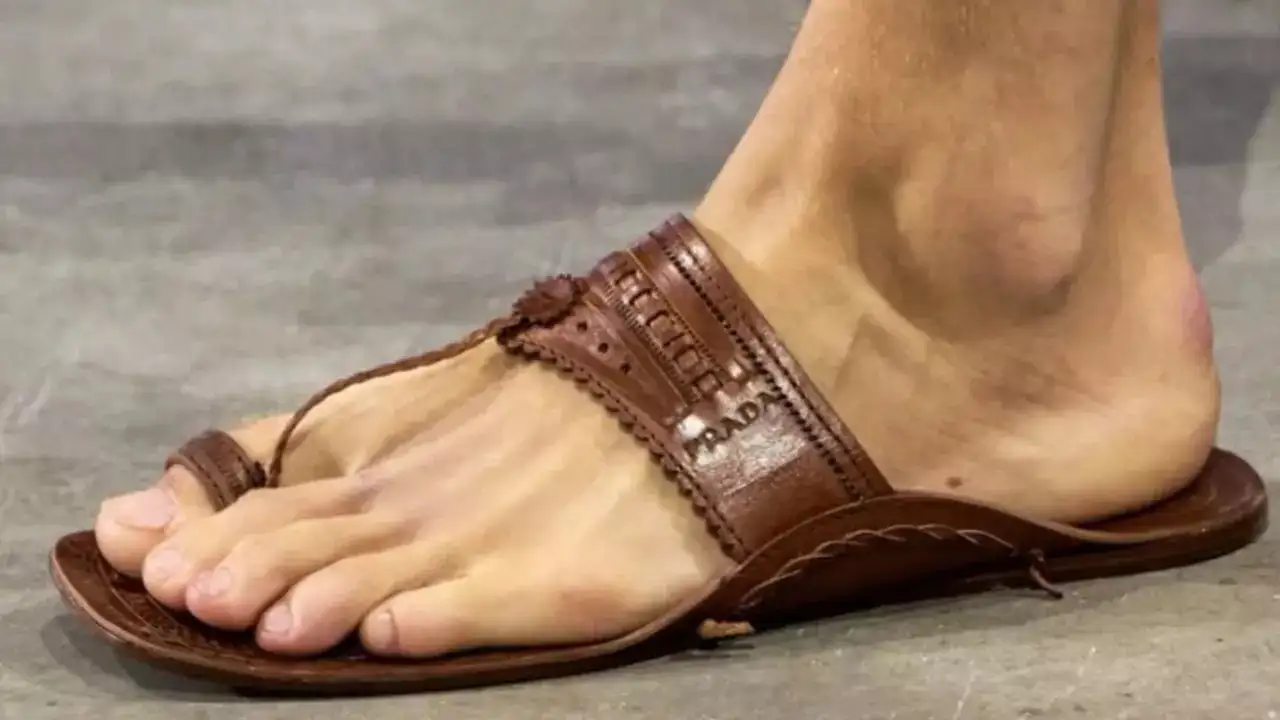When global fashion giant Prada unveiled a sleek pair of leather sandals eerily similar to India’s iconic Kolhapuri chappals, they didn’t expect what followed — a cultural backlash, social media firestorm, and a call for credit from the very artisans who’ve handcrafted these symbols of tradition for over 800 years.
What was initially seen as intellectual appropriation soon turned into a moment of global reckoning. Faced with outrage from craft advocates, fashion historians, and thousands online, Prada did the unthinkable: it acknowledged the roots of the design and sent a delegation to Kolhapur, the heartland of these heritage sandals.
A Fashion Storm Rooted in Leather and Legacy
Kolhapuri chappals — known for their vegetable-tanned leather, intricate handwork, and unmatched durability — are more than just footwear. They’re a cultural emblem of Maharashtra, worn by everyone from saints to students, and now seen on international ramps.
But when a high-end label priced their ‘version’ of Kolhapuris at over Rs 50,000 ($600+), without mention of its origin, it sparked an outcry over exploitation and cultural theft. Indian netizens and designers quickly pointed out the similarities, and soon, the story made waves across global media.

From Protest to Partnership?
In an unexpected twist, Kolhapur’s artisans chose dialogue over hostility. The team from Prada was welcomed with traditional hospitality — saffron tilaks, garlands, and a firsthand look at the centuries-old techniques passed down through generations.
“It’s not about money,” said Ramesh Shinde, a third-generation artisan. “We just want the world to know where these chappals come from, and why they matter.”
The big question remains: Will this visit lead to genuine collaboration or just a PR patch-up? So far, Prada hasn’t confirmed any formal partnership or licensing deal, but discussions around craft acknowledgment, sustainable sourcing, and fair trade have reportedly begun.

A Wake-Up Call for Global Fashion
This incident isn’t isolated. From Banarasi weaves to Madhubani prints, global brands have often drawn inspiration from Indian heritage — rarely giving credit. But the Kolhapuri incident may set a new precedent: one where recognition and respect for tradition take center stage in global design.
For now, Kolhapur has made its point. The world is watching — and hopefully walking — in its shoes, with respect.


